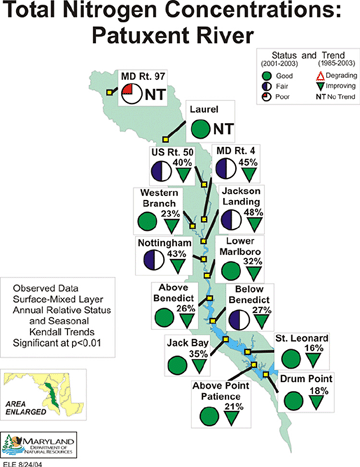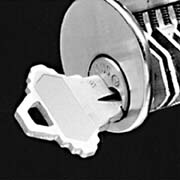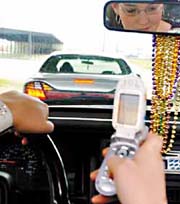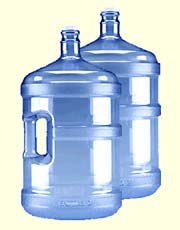Something for Everybody in the
Maryland General Assembly
From bills that could change your life to bills that benefit specific interests
by Carrie Steele and Ben Miller
Under the historic grandeur of the Maryland State House’s 1785 dome, lawmakers are as frantic as worker bees in a hive this legislative season. They’ve less than a month left — until April 10 — to learn about, consider and vote on some 2,300 bills. Even so, that vast number doesn’t include the state’s annual budget.
Our General Assembly’s 47 senators and 141 delegates are learning legislation, talking to constituents, meeting with lobbyists, persuading fellow officials and sitting through hearings — all to make laws that keep us safer, make us healthier and protect us from wrongdoing. Or so we hope.
Before the General Assembly — and the governor, who submits his own legislative wish list — asks us to reelect them in November, it’s considering bills that reach into every corner of Maryland life. Here it can truly be said there’s something for everybody.
As is our custom this time of year, we’ve surveyed this year’s legislative wish list to see whose interests are represented.
A handful of those 2,300 bills could become laws that actually improve the general welfare. We’ve chosen five that may save your health, money or time.
Study the bill list in any session and you’ll read the collective mind of the times, reflected in clusters of bills crafted to push hot-button issues. Among the worries reflected this year are protecting children from sex offenders, handling guns and catching up with technology.
Many other bills affect a very specialized set of Marylanders, defined by shared interest, business or geography. Here, too, you’ll find a few of those that caught our interest.
Finally, every Assembly spends a fair amount of time contemplating animals. Terrapins, bears and elephants: These are among the animals whose futures, like ours, rest in the hands of the men and women we elect to represent us in the Maryland General Assembly.
Five Bills that Could Change Your Life
Healthy Air Act: SB 154 ~ HB 189

• Why we should care: Tighter restrictions on pollutants from coal-burning power plants would make the air that we breathe significantly cleaner.
• What it would do: One of the most publicized bills of the session, this law would require Maryland power plants to reduce emissions of four major pollutants: mercury, sulfur dioxide, nitrogen oxide and carbon dioxide. Thus it would close loopholes that allow seven major coal-burning power plants to run with outdated technology.
The power plants are H.A. Wagner and Brandon Shores in Anne Arundel County; Chalk Point in Prince George’s County; Morgantown in Charles County; C.P. Crane in Baltimore County; R.P. Smith in Washington County; and Dickerson in Montgomery County.
“It affects the seven dirtiest power plants,” says Maryland League of Conservation Voters’ Dawn Stoltzfus. “Those are the ones that have bypassed the Clean Air Act’s intention 30 years ago, and now they’re sending out tons of pollution.”
If the bill passes, says Stoltzfus, these plants would have to install modern scrubbers and cap their emissions of each of four pollutants. For example, by 2010, all the plants together could not emit more than 21,303 tons of nitrogen, which fuels the Chesapeake’s dead zones.
In the scales of justice, supporters say, the cost to power plants would be balanced by equally huge health benefits for Marylanders.
Sulfur is the most expensive, costing $100 million per plant. But the “cost effectiveness is quite good,” according to Brad Heavener of the Maryland Public Interest Research Group.
“You’re looking at $800 per ton of sulfur removed, [versus, if sulfur is not removed,] some $8,000 in terms of the public health cost,” he told Bay Weekly.
Such a law would also curb the neurotoxin mercury, already accumulating in high levels in one of six women of childbearing age in Maryland, according to the Maryland Healthy Air Coalition. Mercury can stunt brain development in children.
Finally, the bill puts limits on carbon dioxide emissions. Power plants are responsible for some 39 percent of all emissions of greenhouse gas in Maryland. Those gasses cause global warming, resulting in severe weather and rising sea levels.
• What’s the status: The Senate Committee on Education Health and Environmental Affairs passed the bill. As of press time, it was scheduled to move to the full Senate for a vote on or around Thursday, March 16.
Prohibiting the Sale of Thermostats with Mercury: SB 772
• Why we should care: Mercury leaking into our waterways accumulates in the tissue of fish and other aquatic creatures we eat. Direct contact is directly poisonous.
• What it would do: Adopting this bill would ban the sale of thermostats containing the neurotoxin mercury. Such thermostats — the temperature controls on the walls of houses — are one of the largest remaining sources of mercury still allowed in Marylanders.
“If you take them apart, they have casings in the back filled with mercury,” says Beth Lefebvre, Maryland communications coordinator for the Chesapeake Bay Foundation. “It’s the same concept as thermometers. The sale of thermometers have already been banned.”
The danger is from these thermostats leaking their mercury into the environment when they’ve outlasted their usefulness. Loose mercury is a fast element. It enters waterways and accumulates in fish and other creatures we eat. Mercury fouls neurological activity, harming development of the brain in children. Though power plants remain king of mercury pollution, every bit hurts.
“People should know that there are alternatives out there, like digital thermostats,” Lefebvre says. There are also ways to dispose of mercury that are safe, she continues. People can take mercury products to mercury recycling centers. Check your county’s website for household hazardous waste drop-off days.
This bill has a very good chance of passing, Sen. Joan Carter Conway, sponsor of the bill, told Bay Weekly. “It came out of committee with all 11 votes in favor,” she said. “There’s no opposition. The thermostat industry didn’t even come out to testify.”
• What’s the status: From the Education, Health and Environmental Affairs committee, the bill is on the schedule to be read on the Senate floor. It is scheduled to go to the House floor in late March.
Sen. E.J. Pipkin’s Four-Part Bay Bridge Package: SB 52; SB 168; SB 511; SB 513
• Why we should care: Sitting in Bay Bridge traffic, inching along Route 50 slows down locals and travelers alike, costing everyone time and money plus burdening air and water with the toxic emissions of all those creeping vehicles.
• What they would do: In a quartet of bills, Sen. E.J. Pipkin has proposed four ways to ease traffic on the Bay Bridge to his home territory, Queen Anne’s County. The first of the four bills, SB 52, would change the shape of the Maryland Transportation Authority Board, increasing the group from six to eight members, staggering their terms and limiting them to no more than three four-year terms.
“It expands the number of people, which means more eyes looking at proposals,” Pipkin told Bay Weekly. “And they have to have expertise related to finance, logistics or other related experience.”
Senate Bill 513 would require the Queen Anne County planning board’s approval of Bay Bridge projects planned by the Maryland Transportation Authority, giving more local say in how cross-Bay travelers get in and out of this pass-through county.
With Pipkin’s next bill, SB 511, traffic jams of 30 minutes or more would trigger a toll turn-off to speed the flow of traffic. To plan for the lost tolls, the bill also comes with a fiscal note of some $2 million, says Pipkin. That fiscal note warns the state to expect that loss in toll revenue.
“If you ask any of the people who wait in line for the Bay Bridge tolls, if Maryland could afford $2 million to get them home, they’d be in favor of that,” says Pipkin.
His final bill in the package, SB 168 would charge double fines on overweight trucks, which put extra stress on bridge and road surfaces. Pipkin believes these heavy vehicles should pay more to help pay for bridge and road repairs.
Will the bills survive the scrutiny of the senate?
“This is a year to make the case that the Maryland Transportation Authority needs to be more responsive to people that use the Bay Bridge,” Pipkin says. Money is the biggest hurdle, he says. “And obviously there’s always a resistance to change.”
• What’s the status: As of press time, Senate Bill 52 — to increase the Maryland Transportation Authority Board — has passed both the Finance Committee and the full Senate. Now the bill is in the House’s court for a vote.
Also passed by the Senate Judicial Proceedings Committee is SB 168, on vehicle weight fines. In the hands of the Finance Committee are both SB 511, to waive toll fees for traffic jams, and SB 513, Queen Anne’s County planning board approval.
Paper Voting Trails: HB 244 & SB 713
• Why we should care: Absence of a paper trail leaves our voting system open to electronic error or foul play by outlaw techies.
• What it would do: Voting in a technological age means computers are bound to enter the races. But as Maryland’s next election approaches, complete dependence on computer voting data means we lose our safety net of a paper trail.
With a voter-verified paper trail that can be audited and recounted, there’s less room for digital error or for hackers changing our votes. With paper proof, Marylanders can be sure they have their truly elected officials.
This bill would provide us with a printout of our vote — a backup — so that we can double check that our choice registered correctly before casting a final vote. The bill also mandates those votes to be audited, if challenged, via the paper trail.
House sponsor Sheila Hixson is confident that we’ll have a paper trail this election. Her bill has passed the House, but it still has hurdles to overcome in the Senate.
“We want to see our approach [prevail], but compromise is what legislation is all about,” said Hixson, who has yet to see how the Senate version will read.
The biggest hurdle for the bill is money. Hixson estimates its cost at $12.5 million, “because we’ve already bought the computerized voting machines,” said Hixson, whose bill calls for leasing the paper ballot Opti-Scan systems.
• What’s the status: Passed the House on March 9 on a vote of 137–0. As of press time, this bill was scheduled for a full hearing, with witnesses, in the Senate on Wednesday, March 15.
Nitrogen Caps on the Patuxent River: HB 1588
• Why we should care: Extra nutrients in the Patuxent River and the Bay deplete oxygen levels, fueling the notorious dead zones where creatures and Bay grasses can’t survive. Such dead zones detract from our ecology, recreation and seafood. Though this bill affects just one river — a long one that transects Maryland — it sets a precedent for other waterways to follow.
Maryland — it sets a precedent for other waterways to follow.
• What it would do: Currently, when a water treatment plant upgrades its treatment technology, it can also expand to serve more homes and businesses. The additional volume can ultimately negate gains made by the upgraded technology.
With a cap on the nitrogen, wastewater treatment plants would have to control their nutrient loads even as they expand.
With this bill, the first of its kind in the entire watershed, wastewater treatment plants would have to curb nitrogen output into the Patuxent River.
“This would be a significant step to restoring what’s wrong with the river as opposed to just studying and monitoring,” said Patuxent Riverkeeper Fred Tutman. “A cap allows you to measure how you’re doing and to watch your progress.”
Sponsoring Del. Sue Kullen, from the Patuxent River’s Calvert region, is working in partnership with her constituent, former Sen. Bernie Fowler. Fowler worked to cap nutrients back in 1981, when Maryland agreed to settle a pre-trial lawsuit he had brought to force the state and wastewater utilities to curb nutrient pollution.
“People forget that this is not only about [the fact] that the river is nasty, but promises [to control nitrogen and phosphorus that] were made,” Tutman said.
Opposition, Tutman, says, must be “folks who think we should be looking at the Bay and not a single river.”
“It’s a really political argument,” he says, because all representatives want legislation for their own district’s watershed. But with the 1981 agreement, Tutman argues, “the Patuxent River was first in line.”
• What’s the status: The bill will be heard in the House Committee on Environmental Matters on Friday, March 17.
Bills that Reflect the Signs of Our Times
by Ben Miller
We are a representative democracy, and the bills introduced by our legislators reflect our collective consciousness, our society’s concerns. They range from those benefiting a narrow special interest to acts that will affect us all. Bills may conflict with one another or come from opposite sides of an issue, but combined they tell us a lot about ourselves. Here are some of the issues on our minds as mirrored in bills that might become laws:
• We fear for our children. Fifty-three bills address sexual offenses and sexual offenders. Most are concerned with protecting children from sexual abuse.
• Teachers and parents always want more from schools. House Bill 744 would provide teachers with a $300 tax credit for purchasing classroom supplies.
• We worry about crime. Two hundred seventy-nine bills come under the category of crime and punishment. One bill (HB 15) calling for 16-year-old defendants to be tried as adults is unlikely to pass.
• We lock our houses from the fearful outside world. House Bill 667 requires locksmiths to be licensed by the state.
• Guns are part of our culture. Twenty-four bills deal with guns. Some protect or expand the rights of gun owners. Others penalize those who use guns to commit a crime. One bill (HB 529) calls for an amendment to the state constitution to add the “right to keep and bear arms for the defense of self, family, home, and State” and for hunting and sport. Another (HB 1382) would allow a person licensed to carry a concealed handgun in another state to carry it concealed in Maryland. House Bill 824 gives judges and commissioners the authority to order people under a protective order to stay away from another person to surrender their firearms to police.
Sometimes bills are not exactly what they seem. Who could be against a bill titled the Women and Children’s Protection Act of 2006? The bill (HB 1162) actually establishes qualifications for women to carry a handgun.
• We are catching up to the unexpected consequences of our technology. House Bill 30 would stop drivers from using one hand to drive and the other to talk on a cell phone; It was introduced for a third year, but is already dead until it returns next year. Cell phone cameras are another concern. House Bill 60 protects people from being photographed “with prurient intent” without their consent.
We are catching up to the unexpected consequences of our technology. House Bill 30 would stop drivers from using one hand to drive and the other to talk on a cell phone; It was introduced for a third year, but is already dead until it returns next year. Cell phone cameras are another concern. House Bill 60 protects people from being photographed “with prurient intent” without their consent.
• We are quick to sue each other. A bill nicknamed The McDonald’s Bill would prohibit a person from suing restaurants because the food made them fat.
• We smoke — or not. Eleven bills deal with cigarettes. A bill banning smoking in restaurants (HB 375) will not pass this year.
• We drink water — and increasingly we think it’s safer if it comes to us prepackaged. House Bill 836 exempts bottled water in containers of a gallon or more from sales tax.
• We look for occasions to celebrate. There’s even a bill to require that the Governor proclaim a specified day as Asian Lunar New Year Day.
• We are a culture of many interests. We may not know much about the new nation of Macedonia carved out of the former Yugoslavia. Or that Greece objects to the name because it has a province called Macedonia. But the Maryland Assembly — following the lead of other state legislatures and dedicated lobbying — weighs in on the debate in House Joint Resolution 2, declaring that the inhabitants of the Greek province of the same name are ethnic Greeks (Hellenes) and thus have exclusive right to the name.
• Living in Chesapeake Country, we get mold in our homes and offices. House Bill 494 requires insurance companies to provide mold insurance to homeowners.
• We die. House Bill 265 exempts coffins and tombstones from state sales tax.
All Creatures Great and Small
by Ben Miller
Forty-seven bills large and small reflect our concern for animals. Here’s a sample:
Black bears
Two bills to ban bear hunting are unlikely to pass. In reaction to bear protectionist, another bill (HB 1436) proposes bringing black bears to live in every county in the state by 2012. Look for one at your bird feeder soon.
Diamondback Terrapins
House Bill 980 would prohibit commercial catching of the state turtle. Another (HB 297) establishes May 13 as Diamondback Terrapin Day — near the time the females lay eggs on Chesapeake beaches.
Elephants at the Zoo
Elephants at the Maryland Zoo in Baltimore would have a better place to live from a grant authorized by Senate Bill 990.
Support for Horse Racing
Several bills, including one funding a study, aim to help Maryland’s beleaguered horse racing industry.
Animal Abuse
House Bill 11 corrects an existing law, prohibiting anyone from hurting an animal. Previously a person had to own or have custody of the animal to be prosecuted. Being cruel to an animal in the presence of a minor would bring enhanced penalties under House Bill 1390.
Horse Transport
Horses could be transported only in horse trailers or vans, not any old trailer, according to House Bill 495.
Sunday Deer Hunting
Anne Arundel County would be open for Sunday deer hunting on private lands under House Bill 205 and Senate Bill 278.
Computerized Hunting
House Bill 968 and Senate Bill 521 would prohibit computer-assisted remote hunting and would revoke the hunting licenses of anyone caught doing so. Hard as it is to believe, Internet hunters shoot from their computers. At a distance, an animal is lured to a feeding station. The so-called hunter guides the crosshairs on the computer screen and fires a mounted rifle with a click of a mouse. The trophy is then shipped to the hunter. Internet hunts have been banned in Texas, where they actually happened, and 12 other states including West Virginia, Virginia and Pennsylvania.
Filming Dogfights or Cockfights
It will all be illegal — creating, selling, distributing, displaying or possessing any image of a dogfight or cockfight — according to House Bill 1213.
The National Aquarium in Baltimore
House Bill 1639 and Senate Bill 1017 will authorize $3 million for an Animal Care Center at the aquarium.
Pet Cemeteries
Senate Bill 983 sets requirements for pet cemetery owners to protect pet owners from unfair business practices.
practices.
Can You Leave Your Millions to Your Cat?
Yes, at least for its permanent care. Senate Bill 235 clarifies the law regarding trusts created to care for an animal after the owner’s death.

